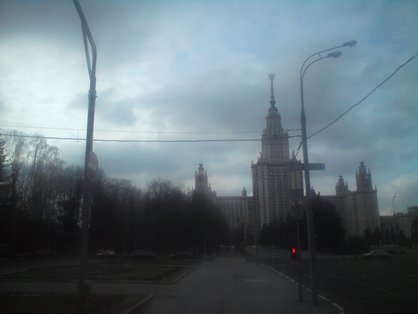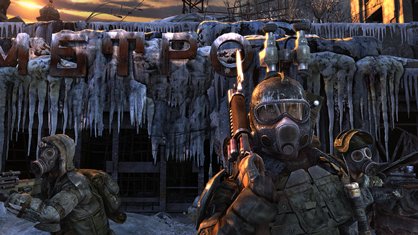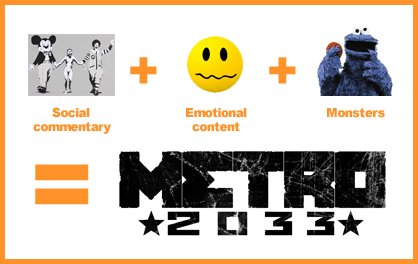Metro 2033: The return of 'proper' survival horror?
How nuclear armageddon could resuscitate a flatlining genre
Metro 2033 is also a game that understands the importance of ambience in the horror genre. All the monsters and gore in the world aren't going to genuinely unsettle unless wrapped up in a dark and affecting atmosphere. Watch any truly good (or bad) horror film for evidence of that. Also, see the Resident Evils 1 - 3 and the whole Silent Hill series.

Above: Metro's townships are packed with life and relatively safe, but the sense of loss is tangible.
Metro mixes its varied action with storytelling in an excellently-paced and atmospheric way. The Moscow Metro of the story is a divided one, in which stations act as ghetto townships and between them cover the whole gamut of political leanings, from liberal to fascist. Tension is always high and monsters are certainly not the only threat. The scraps of humanity are huddling together for survival, but thanks to claustrophobic desperation and heavily opposing belief systems, inter-township violence is still rife.
The sense of exploring a living, breathing place in these stations is a vivid but melancholic one. They're packed with people and traders trying to keep their improvised lives running as best they can despite the desolation, but there’s a tangible and poignant sense of oppression to be picked up through the grumbling conversations of their makeshift marketplaces and the sight of young children drawing idealised pictures of blue-skied home-lives they've never seen and never will.

Above: The real Moscow is a surreal place to start with. Nuked out, it's an ideal game location.
The real-life Moscow is a strange city; cold, grey and functional, but highlighted with incandescent pockets of stunning opulence. That in itself creates a unique atmosphere, and the devastated version seen in Metro 2033 has an incredibly mournful tone, adding an extra emotional punch to every monster encounter.
And all of this is given a boost by the game's origins. Metro 2033 the game is actually an adaptation of Metro 2033 the novel. Originally published online in 2002 and then printed in 2005, Dmitry Glukhovsky's doorstop science fiction dystopia has sold 400, 000 copies in Russia and is being translated for 20 foreign countries. Apparently it’s a bit good.
Weekly digests, tales from the communities you love, and more

Above: Even nuked and crawling with monsters, Metro's version of Moscow is authentic and recognisable.
A layered, intelligent and philosophical socio-political dissection of the current Russia's ills might not sound like an ideal fit for an FPS, but the devs think that their story translation alone is accurate enough to load the game with Glukhovsky's points, and the writer himself thinks they've got the rest right too:
The things that make the book emotional are the story of survival, the story of keeping hope despite the precise knowledge that you have no future, that this world has no tomorrow. People being able to love each other, to tell each other that they will love each other forever when there is no "ever". People who try to remain human in a world full of monsters, when even other people are monsters. In what I saw from what I've played, they managed to keep this atmosphere and they managed to keep this spirit."
In summary




